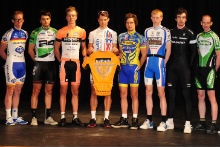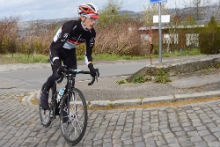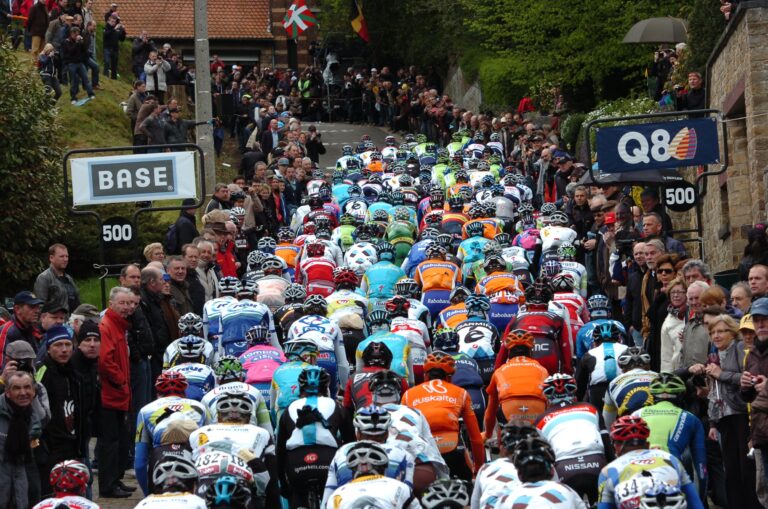The frame builder’s art is practiced successfully only by the dedicated few, those for whom the pursuit of perfection is not a choice, whose time away from the workshop is ruined if work has not been completed to the highest possible standard.
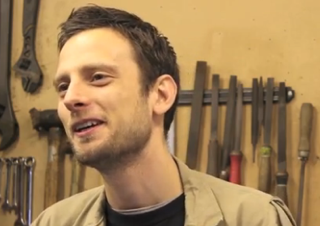
Tom Warmerdam is just such a frame builder. Joint winner of the best road bike award at the North American Hand Made Bike Show earlier this month, his Demon Frameworks creations have earned an enviable reputation in an impressively short period.
“Phrases like ‘good enough’ or ‘that will do’ are not allowed in the workshop,” he told RoadCyclingUK in only the second interview he has given. “They have to be spot on, perfect every time. I get almost OCD about the silver solder on a lug.
“I even get out a magnifying glass. I remember my girlfriend asking, why have you been polishing that square centimeter of stainless steel for the last hour? But if I don’t do that, I can’t feel satisfied.”
Driven to ‘make things’, Warmerdam followed an academic career that had left him unsatisfied with a course at the Southampton Engineering Training Association, where he learned TIG, MMA, MIG, and brazing gas welding, milling, pipe bending, and CNC machining.
Financed by a small inheritance from his grandfather, a cabinet maker, Warmerdam moved into a small workshop behind Southampton Central station, repaired the leaks, bought tools, and began practicing his art by making frames for himself, family, and friends. With his grandfather’s inheritance spent, Warmerdam took the next step and began making frames to sell. “I exhibited at the 2009 European Handmade Bike Expo. I got an amazing response. Whatever I did, people liked it, in particular a raw frame I’d taken that was a work in progress. I’m glad I did. It showed people the attention to detail: the crispness of the lugs and the smoothness.”
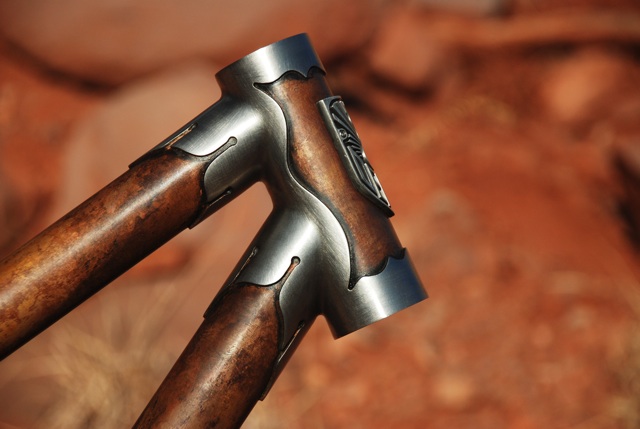
“I think it’s incredibly important to have something made in the UK, so I always use Reynolds as far as I can,” he says. Columbus steels “sneak in” to some of his work, where Reynolds are unable to supply the requirements for a frame. He works with all grades of Reynolds steels, including the stainless 931 and 953 grades. “All steels have the same modulus of elasticity; they all have the same amount of flex, but the thing with 953 is that it won’t flex beyond a certain point. 931 is interesting. As a frame builder, it’s slightly more pleasant to work with. 953 is armour plating in tube format. It’s hard on your tools. If I work on one 953 frame, I have to throw away all my hand tools. 931 is a dream to work with. The thing about both stainless steels is you’re able to be more creative with the finish.”
Demon Frameworks produce just 15 frames a year, a mark of Warmderdam’s exacting standards.
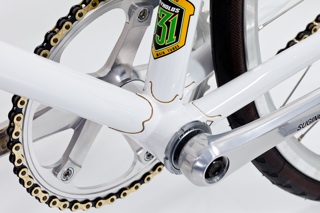
An early business model of offering to build custom frames to any design has been largely replaced by Warmerdam’s Signature series. Mosquito Bikes in north London will be the exclusive retailer. “I’m now giving people a much more limited menu, but what I’m offering now is only something I would eat myself,” he says.
Custom commissions that “sound particularly cool and kind of fit with the whole Demon thing,” will still be accepted, but the Signature series is where Warmerdam will develop his business. “The options have been reduced, but what you get is pretty much unique to Demon Frameworks. No one else makes frames that look like mine.”
Warmerdam has stopped using off-the-shelf lugs and has begun making his own “21st century lug work”, less curly than those of traditional frame builders, with modern, but classic lines. Warmerdam was inspired by the ethos, if not the design, of builders like Hetchins, whose unbadged frames could be recognised by their lug work. “I wanted to find an identity for Demon Frameworks that would really set it apart from what other people were doing. I wanted my bikes to roll down the street with no badges and still be instantly recognizable as a Demon,” he says.
He cites the recession and a frustration with the built-in obsolesce of modern manufacture for the resurgence in popularity of handmade crafts. He also believes the UK is taking a cue from America in rediscovering a pride in crafts made on its own shores. “People have started to remember that the UK was the workshop of the world. We’ve lost that and that’s a terrible shame,” he says. A return to thriving domestic industry may be a little way off, he concedes, but it has begun.

